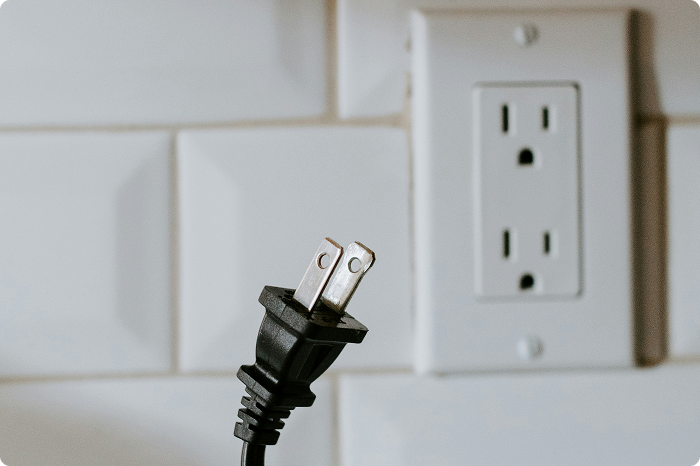Tackling Outlet Problems and Burning Smell Issues in Your Home
By Jennifer Barnett · Jul 25, 2025

If you've recently noticed a burning smell or are experiencing outlet problems in your home, it's crucial to address these issues immediately. Burning smells are often associated with electrical hazards that can lead to serious consequences, including fires and electrical shocks. Understanding the root causes of these problems will not only prevent potential disasters but also ensure the safety and efficiency of your home's electrical system. This comprehensive guide delves into diagnosing burning smell issues, common outlet problems, and effective solutions to keep your home safe and sound.
Understanding Burning Smell Issues
A burning smell in your home is a red flag that shouldn't be ignored. Such odors often indicate that electrical components are overheating, melting, or even catching fire. Identifying the source of the smell promptly can prevent severe damage.
Common Causes of Burning Smells
- Overloaded Circuits: Excessive load on a circuit can cause wires to overheat.
- Faulty Appliances: Malfunctioning or old appliances can generate excessive heat.
- Worn-out Wiring: Aging or damaged wiring can lead to poor connections and overheating.
- Loose Connections: Loose wiring within outlets or junction boxes can result in arcing and burning smells.
Diagnosing Outlet Problems
Outlets are integral to our daily lives, powering everything from kitchen appliances to personal devices. However, when outlets malfunction, they can cause significant inconvenience and pose safety risks.
Signs of Faulty Outlets
- Sparking: An outlet that sparks when plugging in or unplugging devices indicates a problem.
- Warm to the Touch: Outlets that are warm can signify overheating due to faulty connections.
- Intermittent Power: Devices that power on and off unpredictably may be connected to a faulty outlet.
- Discoloration: Brown or black marks on the outlet's faceplate are signs of scorching due to arcing.
Common Outlet Problems
Loose Wiring
Loose wiring in outlets is a common issue that can lead to hazardous conditions. If the wiring isn't firmly connected, it can cause electrical arcing, leading to overheating and potential fires.
How to Fix Loose Wiring
- Turn Off the Power: Switch off the main breaker before working on any outlets.
- Remove the Outlet Cover: Unscrew the cover plate to access the wiring.
- Check the Connections: Tighten any loose screws holding the wires. Ensure that all connections are secure.
- Inspect for Damage: Look for signs of wear and replace any damaged wires.
Overloaded Outlets
Using an outlet to power multiple high-demand devices can lead to overheating and potential fire hazards.
How to Prevent Overloading
- Use Surge Protectors: Distribute the load using surge protectors with built-in circuit breakers.
- Limit High-Power Devices: Avoid plugging in too many high-power devices into a single outlet.
- Upgrade Your Electrical System: If your home frequently experiences overloaded circuits, consider upgrading to a system with higher capacity.
Faulty GFCIs (Ground Fault Circuit Interrupters)
GFCI outlets are designed to prevent electrical shock in areas prone to moisture, such as kitchens and bathrooms. When GFCIs fail, they can no longer provide this protection.
Testing and Replacing GFCIs
- Test Regularly: Use the test and reset buttons on the GFCI outlet to ensure it's functioning correctly.
- Replace if Necessary: If the GFCI doesn't reset, it may need to be replaced. Turn off the power and follow the manufacturer's instructions for replacement.
Outdated Outlets
Older homes often have outdated two-prong outlets that lack grounding, increasing the risk of electrical shock and equipment damage.
Upgrading to Modern Outlets
- Evaluate the System: Have a licensed electrician assess your home's wiring.
- Install Three-Prong Outlets: Replace two-prong outlets with three-prong versions that provide grounding.
- Consider AFCI Protection: Arc Fault Circuit Interrupter (AFCI) outlets protect against electrical arcs that can cause fires.
Safety Measures and Precautions
Regular Inspections
Conduct routine inspections of your electrical system to catch potential issues early. Look for signs of wear, discoloration, or unusual smells around outlets and switches.
Use Quality Components
Always use high-quality materials and components for any electrical work. Cheap alternatives may not meet safety standards and can fail prematurely.
Hire Licensed Professionals
For any major electrical work, such as rewiring or installing new circuits, it's best to hire a licensed electrician. Professionals ensure that the work complies with safety standards and local building codes.
Educate Household Members
Make sure everyone in the household knows the basics of electrical safety, such as not overloading outlets, recognizing warning signs of electrical problems, and knowing how to shut off the power in an emergency.
Conclusion
Addressing burning smell issues and outlet problems promptly can prevent serious hazards in your home. Regular inspections, careful troubleshooting, and adherence to safety practices are essential to maintaining a secure and efficient electrical system.
For those more complex issues that are beyond the capabilities of a DIY fix, hiring a licensed professional is the safest route. HouzTask is an excellent resource for finding reliable, certified electricians and other home service professionals. If you have more questions or need professional assistance, use HouzTask's AI for guidance and finding local pros effortlessly.
Need help?
Let HouzTask help you diagnose the issue or connect with a trusted local pro — in minutes.
Get Started with HouzTask